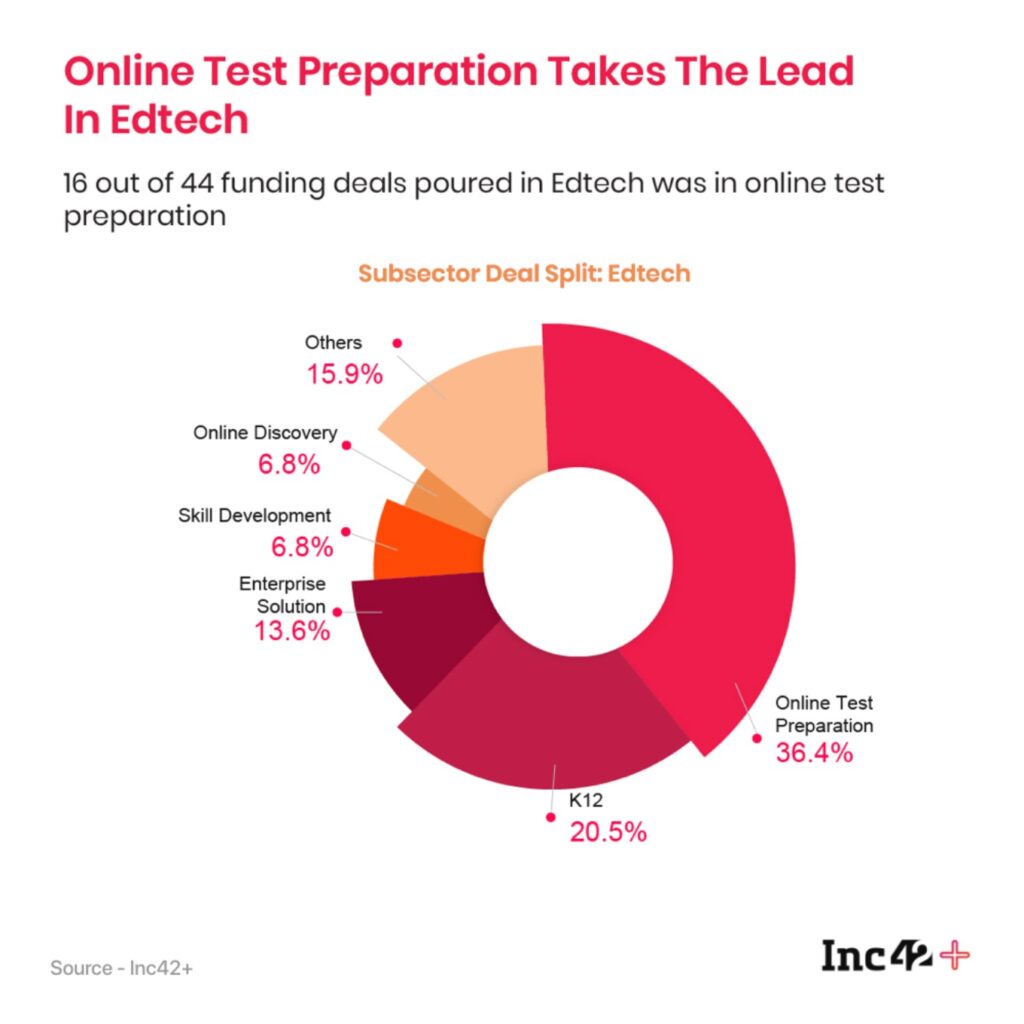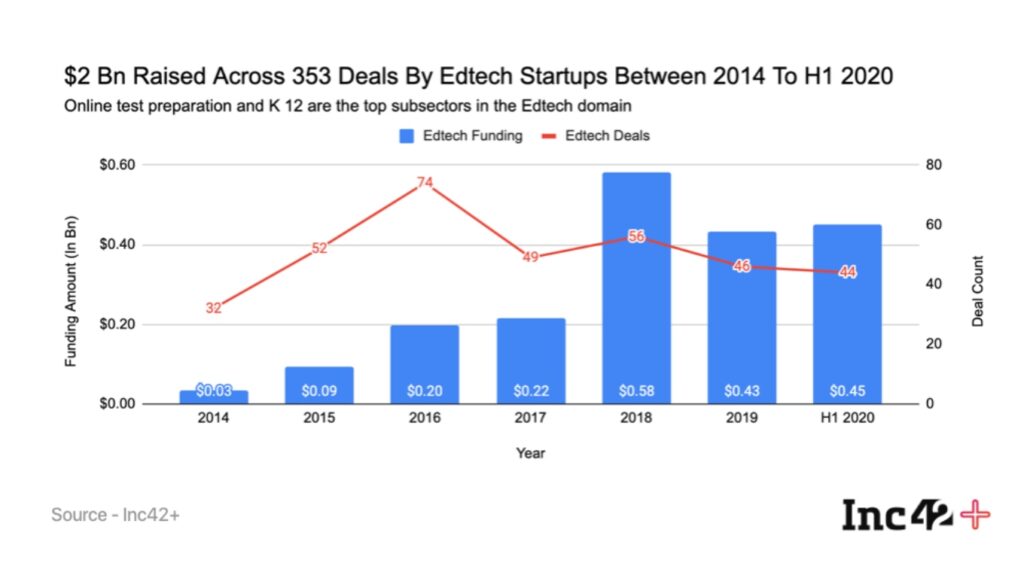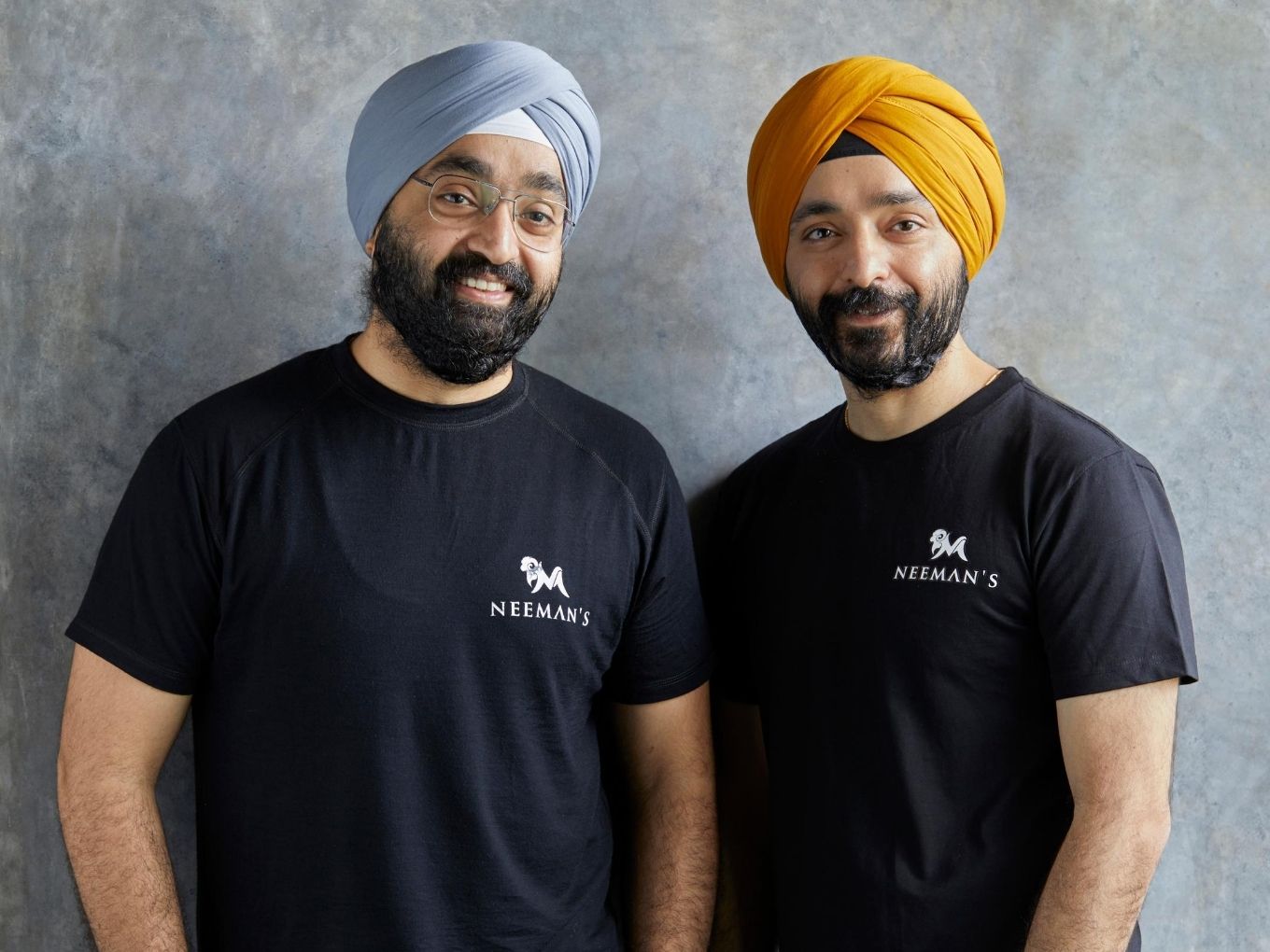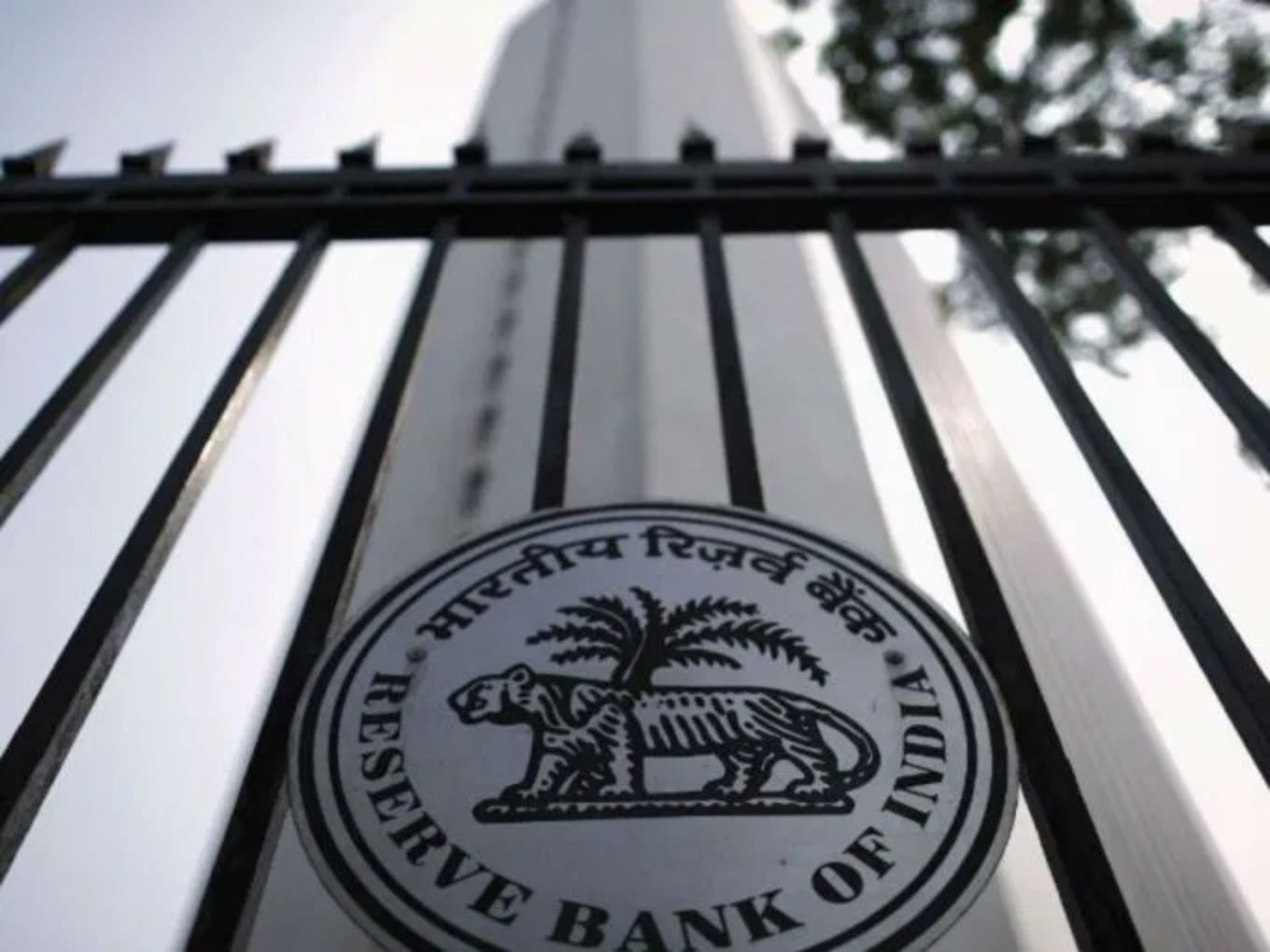![How BYJU’S Is Leveraging Acquisitions To Build An Edtech Empire]()
Bengaluru-headquartered edtech decacorn BYJU’S, late on Wednesday (August 5), announced that it has acquired Mumbai-based online coding platform WhiteHatJr for $300 Mn.
With the acquisition, BYJU’S aims to expand its product offerings, as well as widen its base in India and the US where WhiteHatJr already has a presence. BYJU’S will also make investments in WhiteHatJr’s technology platform, product innovation while expanding the teacher base to cater to demand from new markets.
BYJU’S is a significant player in India’s burgeoning edtech space catering to learning needs by offering online lessons to school-going students, as well as comprehensive courses for competitive exam preparation. The company, founded in 2011 by Byju Raveendran and Divya Gokulnath, launched its platform in 2015, and now boasts of 64 Mn students cumulatively learning from the app, 4.2 Mn annual paid subscriptions and an annual renewal rate of 85%.
BYJU’S claims to be creating personalised learning programs for students based on their proficiency levels and capabilities which help them learn at their own pace and style. The company says it doubled its revenue from INR 1,430 Cr to INR 2,800 Cr in FY 19-20. As of May, the company was raising funds at a $10 Bn valuation.
With the WhiteHatJr acquisition, BYJU’S will gain access to seven lakh registered users on the platform, benefiting from around 7,000 online classes every day. By teaching the fundamentals of coding, WhiteHatJr helps children aged 6-14 build commercial-ready games, animations and apps online. According to the company’s founder Karan Bajaj, inculcating coding in schools’ curriculum could further an active paradigm of learning instead of the passive one prevalent in India.
In an interview with Mint, BYJU’S co-founder Byju Raveendran also stressed on the importance of teaching coding to young children. “Even though students might not take up coding as a career option, it eventually helps them become active learners. Most of the changes in our traditional school curriculum in the last few decades were focused on passive learning methods, but we believe that the future of learning must be based on active learning methods.”
WhiteHatJr recently announced plans to expand to other global markets like Canada, UK, Australia and New Zealand after witnessing growth in the US for its one-to-one online coding classes. After launching their courses in the US, since February this year, the company claims to be growing at more than 100% MoM in the country.
Raveendran attested to the fact that the WhiteHatJr acquisition will help his company in its expansion plans. “The WhiteHatJr course format is very different from our current course format and offers live one-on-one classes, and there is a huge opportunity to scale this product not just in India, but in foreign markets as well. As part of our international expansion plans, we will be able to scale our offerings to new countries with the acquisition.”
The Edtech Wave In India
India witnessed the first signs of the edtech wave 10-15 years ago with the widespread adoption of smart boards and enterprise resource planning software (ERP) in physical classrooms. Soon, the popularity of ‘coaching classes’ for various competitive exams saw similar offerings for exam preparation being offered online, with live video sessions and mentor feedback pushing the demand for online learning platforms.
From then to now, as per DataLabs by Inc42+ estimates, there are a total of 4,450 edtech startups operating in India at present spread across various segments such as — test preparation, online certification, skill development, online discovery, and STEAM kit and enterprise solutions.
![How BYJU'S Is Leveraging Acquisitions To Build An Edtech Empire]()
In the current scenario, test preparation and online certification startups are holding the majority market share. According to the ‘Future Of India’s $2 Bn Edtech Opportunity Report 2020’, capital inflows into the test preparation and online certification segments are comparatively higher. Together, K-12 and test preparation combined will make 66% ($1.3 Bn) of the total online education market size in 2021, the report noted.
BYJU’S, which is the world’s highest-valued edtech company — it was valued at $10.5 Bn after its fundraise from US-based venture capital firm Bond in June this year — has also expanded its suite of offerings over the years. In June, the company launched BYJU’S Classes to offer personalised after school tuition classes for students in the fourth to 10th standard, besides its other offerings for the school-going students as well as those preparing for competitive examinations. Now, with the acquisition of WhiteHatJr, BYJU’S is looking to expand into yet another relatively untapped segment in the edtech sector — coding.
BYJU’S & Unacademy The New Super Apps
Lately, BYJU’s seems to be a pioneer in the M&A play. In June, the company was reported to be in talks to acquire another edtech startup, the New Delhi-based two-year-old startup Doubtnut for a deal expected to be worth more than $125 Mn.
Last year, the company acquired US-based learning platform Osmo for $120 Mn as part of its international expansion plans. In 2018, the company acquired math learning startup Math Adventures. In 2017, BYJU’S also acquired US-based online tutoring app TutorVista and Edurite from Pearson (Edurite was acquired by Tutorvista in 2007 and Tutorvista was acquired by Pearson in 2013). In the same year, the company also acquired student assessment platform Vidyartha.
A closer look at the companies acquired by BYJU’s would reveal that the focus seems to be on assimilating younger startups with niche offerings, whether it be Doubtnut, which reported a spike in users from tier 2 and tier 3 cities since it allows students from the sixth to 12th grade to solve math and science problems in local languages, or the most recent acquisition of WhiteHatJr, which focuses on one of the most in-demand technical skills in our times – coding.
As for TutorVista, the platform gets around 70% of its users from the US, making it a viable acquisition for BYJU’S as it tries to further its global presence. Similarly, Math Adventures’ model involves a facilitator taking one class out of the allocated weekly math classes in schools and making students understand concepts they had learnt in the conventional class, but by using activities.
Shedding light on his philosophy behind mergers and acquisitions, Raveendran said that the focus for a deal is on whether the two companies have a complementary nature which could help scalability. “If a potential acquisition or merger fits into our strategy of building a product focused on the same age groups, brand vision, and demographics, then we will surely examine it. So, in the future, we will also look at companies that fit into our long-term vision of helping students get access to different learning formats of online learning.”
A similar trend can be witnessed with another Bengaluru-based edtech startup Unacademy. Last month, the company acquired PrepLadder, a postgraduate medical entrance exam preparation platform for $50 Mn. The acquisition is expected to strengthen Unacademy’s presence in the medical entrance examinations categories such as the National Eligibility cum Entrance Test (NEET) for medical postgraduate courses.
Earlier this year, Unacademy acquired edtech startup Kreatryx to strengthen its presence in the GATE and ESE segments in the test prep market, and Mumbai-based competitive programming platform CodeChef.
With the assimilation of a range of offerings in the edtech space, platforms like BYJU’S and Unacademy are seen to be moving closer to becoming ‘Super Apps’, those with a multitude of offerings that will give students a variety of choices and a complete learning experience.
So would the larger drive of consolidation in the edtech space by ‘Super Apps’ see the sector in India become a duopoly. “We’ve seen this trend with a lot of digital companies in other sectors as well, whether it be ecommerce or food delivery. The strong ones become stronger because scalability isn’t an issue for them and the weak ones eventually die a slow death,” said Santosh, adding that that the trend of M&A at play currently could unwittingly organise the edtech space.
“We saw a similar thing happen with ecommerce, where Amazon and Flipkart are now getting the smaller sellers and kirana stores on their platform. Similarly, the aunty who gives tuitions to kids from the neighbourhood could soon be roped in by BYJU’S. Coaching classes could be subsumed under the online learning space. It depends on the bigger players on how they exercise their power on whether an Indian edtech market with just two or three major players would be a good or a bad one,” he added.
The Rise Of Mergers And Acquisitions In Edtech
There’s been a recent wave of mergers and acquisitions in the Indian edtech sector, with DataLabs by Inc42+ estimates revealing that between 2014 and H1 2020 a total of 42 edtech startups underwent mergers or acquisitions.
![How BYJU'S Is Leveraging Acquisitions To Build An Edtech Empire]()
While initial public offerings (IPO) and mergers and acquisitions (M&A) are two of the most prominent exit strategies in any startup ecosystem around the world, the fact that very few edtech companies globally, even fewer from India have gone the IPO route make it the road less travelled. The same is true for BYJU’S, with Raveendran confirming that the company need not do it soon to give an exit to early investors, while the company is profitable and generating net cash flow.
On the other hand, the M&A strategy allows edtech startups to acquire competitors and their niche capabilities, thus gaining market advantage.
Arpit Jain, CEO and co-founder of SplashLearn, an online K-5 math learning program told Inc42, “Acquisitions are mainly done to acquire niche capabilities, or for a growing customer base. Whereas mergers can be done to gain inroads into an alien market with the partner company providing the know-how, and dealing with the local nuances.”
“With so much movement and potential in the edtech sector, consolidation within the industry is possible, with companies finding technology, talent, and offerings complementary to each other. Another ideal exit for an Indian edtech company can be, to be acquired by a global education company,” Jain added.
For the smaller edtech startups, the Covid-19 induced growth in online learning has seen many of these companies utilise the spike in user growth and revenue to exercise their exit options. He further added, “A lot of the smaller startups which we see being acquired now, they’ve probably exited at the peak, as the shutdown of schools and colleges in the past 5-6 months of the pandemic has seen the edtech space boom in India.”
“This is because many of the extra-curricular activities for school-going students weren’t possible because of the lockdown, so naturally, these edtech offerings were natural alternatives for students to make use of their time, also for working professionals looking to upskill and everyone else,” said Santosh N, managing partner D and P Advisory LLP and external advisor, Duff and Phelps, a financial consultancy firm.
“These platforms offering niche services in the online learning space must have seen a growth in users. This would have helped them get a better valuation and deal. For the larger companies, it’s plainly about consolidation and increasing their bouquet of services,” he added.
According to DataLabs analysis, test prep and K-12 edtech startups combined are estimated to be worth $1.3 Bn by 2021. Further, according to a study by KPMG, the estimated market size for the online certification and the reskilling industry is estimated to be $463 Mn (2021) growing at a compounded annual growth rate (CAGR) of 38% since the year 2016. The edtech sector is blowing hot during the lockdown with the very visible consolidation wave by the bigger players. Whether this trend proves beneficial or detrimental for the online learning space in India in the coming years remains to be seen.
The post How BYJU’S Is Leveraging Acquisitions To Build An Edtech Empire appeared first on Inc42 Media.














 Important news about
Important news about 





![Movers And Shakers Of The Week [August 3-8]](http://inc42.com/wp-content/uploads/2020/08/Feature_Image_Movers-2.jpg)
 Dear Learner, Last week, Indian education policy finally caught up with the times and the mission statement of the thousands of edtech startups in the country. With an eye on holistic education and 360-degree learning, the National Education Policy 2020 (NEP 2020) has introduced some radical changes like doing away with formative assessment, harmful hierarchies in primary education and silos between different areas of learning. At the same time, it is also looking to reduce the burden on parents from the point of view of coaching classes and eliminate the pressure on students when it comes to the ‘high stakes’... This is an Inc42+ Member Exclusive story.
Dear Learner, Last week, Indian education policy finally caught up with the times and the mission statement of the thousands of edtech startups in the country. With an eye on holistic education and 360-degree learning, the National Education Policy 2020 (NEP 2020) has introduced some radical changes like doing away with formative assessment, harmful hierarchies in primary education and silos between different areas of learning. At the same time, it is also looking to reduce the burden on parents from the point of view of coaching classes and eliminate the pressure on students when it comes to the ‘high stakes’... This is an Inc42+ Member Exclusive story. 
![Funding Galore: Indian Startup Funding Of The Week [July 3- August 8]](http://inc42.com/wp-content/uploads/2020/08/Funding1.jpg)
 FreshToHome: Bengaluru-based online marketplace for perishable goods FreshToHome is raising nearly
FreshToHome: Bengaluru-based online marketplace for perishable goods FreshToHome is raising nearly Eduvanz Financing: Mumbai-based student loans startups Eduvanz Financing is raising
Eduvanz Financing: Mumbai-based student loans startups Eduvanz Financing is raising ![Funding Galore: Indian Startup Funding Of The Week [July 3- August 8]](http://inc42.com/wp-content/uploads/2020/08/Untitled-design-2020-08-08T125222.956.jpg) Wobot Intelligence: Delhi-based video analytics platform Wobot Intelligence has
Wobot Intelligence: Delhi-based video analytics platform Wobot Intelligence has  Yulu Bikes: Yulu Bikes has received an approval to raise $796K (INR 5.97K) from Bajaj Auto. According to the corporate affairs fillings, the company will be allocating 895 Series A2 preference shares at a face value of INR 100 and premium of INR 66,650 to Bajaj Auto.
Yulu Bikes: Yulu Bikes has received an approval to raise $796K (INR 5.97K) from Bajaj Auto. According to the corporate affairs fillings, the company will be allocating 895 Series A2 preference shares at a face value of INR 100 and premium of INR 66,650 to Bajaj Auto. EasyPolicy: EasyPolicy has received the approval of its existing investors to issue 54,54,600 equity shares at face value of INR 10 worth $726K (INR 5.45 Cr) to Unilazer Ventures, according to the corporate affairs fillings accessed by Inc42.
EasyPolicy: EasyPolicy has received the approval of its existing investors to issue 54,54,600 equity shares at face value of INR 10 worth $726K (INR 5.45 Cr) to Unilazer Ventures, according to the corporate affairs fillings accessed by Inc42. Bolo Indya: Gurugram-based regional language short-video platform Bolo Indya has raised $500K Series A funding from Eagle 10 Ventures and India Accelerator Group. It will use the funding to aggressively enhance its personalisation and recommendation engine, develop language evangelists and strengthen the team. A part of the fund will also be used to broaden and accelerate product development.
Bolo Indya: Gurugram-based regional language short-video platform Bolo Indya has raised $500K Series A funding from Eagle 10 Ventures and India Accelerator Group. It will use the funding to aggressively enhance its personalisation and recommendation engine, develop language evangelists and strengthen the team. A part of the fund will also be used to broaden and accelerate product development. Data Sutram: Kolkata-based Data Sutram has raised $226K (INR 2 Cr) in seed funding from Indian Angel Network angels Uday Sodhi, Mitesh Shah and Nitin Jain. The company will use this funding to strengthen its platform by providing enhanced services to our consumers.’
Data Sutram: Kolkata-based Data Sutram has raised $226K (INR 2 Cr) in seed funding from Indian Angel Network angels Uday Sodhi, Mitesh Shah and Nitin Jain. The company will use this funding to strengthen its platform by providing enhanced services to our consumers.’ Phable Care: Health management platform Phable Care has raised $162K (INR 1.22 Cr) in pre-Series A from nearly 40 investors. According to the ministry of corporate affairs’ fillings, Phable Care’s parent company Terrals Technologies Private Limited has allocated 439 Pre-Series A1 equity shares at face value of INR 100 and premium of INR 27,738 to 40 allottees.
Phable Care: Health management platform Phable Care has raised $162K (INR 1.22 Cr) in pre-Series A from nearly 40 investors. According to the ministry of corporate affairs’ fillings, Phable Care’s parent company Terrals Technologies Private Limited has allocated 439 Pre-Series A1 equity shares at face value of INR 100 and premium of INR 27,738 to 40 allottees. Beewrks: Digital contact center marketplace, Beewrks, has raised $150K from Phonon Communications. WIth this investment, Phonon aims to get nearly 1 Lakh professionals employed on Beewrks.
Beewrks: Digital contact center marketplace, Beewrks, has raised $150K from Phonon Communications. WIth this investment, Phonon aims to get nearly 1 Lakh professionals employed on Beewrks. Origo Commodities: Origo Commodities has raised $86K (INR 65,00,000) through non-convertible debentures from IFMR FImpact Long Term Multi-Asset Class Fund, according to the ministry of corporate affairs filings accessed by Inc42.
Origo Commodities: Origo Commodities has raised $86K (INR 65,00,000) through non-convertible debentures from IFMR FImpact Long Term Multi-Asset Class Fund, according to the ministry of corporate affairs filings accessed by Inc42. Zo Rooms: Budget hotel room has raised $73K (INR 55 Lakhs) through non convertible debentures from Orios Ventures Partners Fund I.
Zo Rooms: Budget hotel room has raised $73K (INR 55 Lakhs) through non convertible debentures from Orios Ventures Partners Fund I. Probus Smart Things: IOT enabled Smart grid automation startup Probus Smart Things has raised an undisclosed amount in a seed funding round led by Mumbai-based early-stage investment firm Unicorn India Ventures. The company plans to use this funding to scale up its platform and expand to new geographies.
Probus Smart Things: IOT enabled Smart grid automation startup Probus Smart Things has raised an undisclosed amount in a seed funding round led by Mumbai-based early-stage investment firm Unicorn India Ventures. The company plans to use this funding to scale up its platform and expand to new geographies.
![News Roundup: Indian Startup News Stories Of The Week [3-8 August]](http://inc42.com/wp-content/uploads/2020/08/Feature_Image_News-Aug-1.jpg)



![News Roundup: Indian Startup News Stories Of The Week [3-8 August]](http://inc42.com/wp-content/uploads/2020/08/online-gaming-feature-1024x768.jpg)
